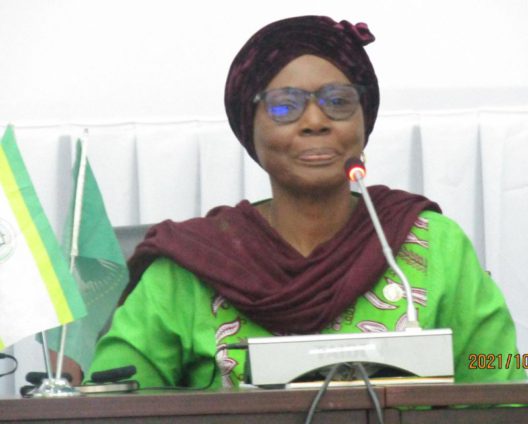The African Court on Human and People’s Rights says in strategic or public interest human rights litigation, the media are critical before, during, and after any successful justice process.
“Depending on how the stories are cast, presented, told and communicated, the media must, therefore, adopt innovative ideas on making human rights more attractive to the relevant stakeholders in the African context,” Lady Justice Imani D. Aboud, African Court President stated.
Lady Justice Aboud was speaking during a three-day African Court on Human and Peoples’ Rights Media Training for Senior Editors and Journalists in Dar es Salaam, Tanzania.
She said communication about the Court should be framed to meet the needs of its various stakeholders.
The African Court President noted that the training was also to empower the core senior editors and journalists to duly perform their mission in the chain of actions of the African Court.
“Whether for litigants to bring cases, for counsel to defend litigants, for academics or other knowledgeable institutions to act as amici curiae, for States to implement decisions or for regional organs to supervise the enforcement of the Court’s proceedings, the media plays a crucial role,” she said.
The African Court was established under Article 1 of the Protocol to the African Charter on Human and Peoples’ Rights.
The Protocol which was adopted by Member States of the then Organization of African Unity (OAU) in Ouagadougou, Burkina Faso, in June 1998 came into force on January 25, 2004.
African Court Media Network, therefore, questions the commitment of the African Union to the mandate of the African Court as currently only 31 AU Members States have ratified the Protocol to ensure the protection of human and peoples’ rights in Africa.
About 24 AU Member Countries have refused to ratify the African Court Protocol.

The countries which have ratified are Algeria, Benin, Burkina Faso, Burundi, Cameroon, Chad, Côte d’Ivoire, Comoros, Congo, Democratic Republic of Congo, Gabon, The Gambia, Ghana, Kenya, Libya, Lesotho, Mali, Malawi, Mozambique, Mauritania, Mauritius, Nigeria, Niger, Rwanda, Sahrawi Arab Democratic Republic, South Africa, Senegal, Tanzania, Togo, Tunisia, and Uganda.
However, only six out of the 31 State Parties to the Protocol had deposited the declaration, recognizing the competence of the African Court to receive cases directly from NGOs and individuals.
The six States are Burkina Faso, The Gambia, Ghana, Mali, Malawi, and Tunisia.
The African Court Media Network, therefore, challenged the AU member states to show commitment to the African Continental Court to protect the human rights of its people.
Latest Stories
-
George Twum-Barimah-Adu pledges inclusive cabinet with Minority and Majority leaders
29 mins -
Labourer jailed 5 years for inflicting cutlass wounds on businessman
30 mins -
Parliament urged to fast-track passage of Road Traffic Amendment Bill
31 mins -
Mr Daniel Kofi Asante aka Electrician
31 mins -
Minerals Commission, Solidaridad unveils forum to tackle child labour in mining sector
37 mins -
Election 2024: Engagement with security services productive – NDC
38 mins -
Retain NPP for the good of Ghana – Rebecca Akufo-Addo
38 mins -
‘Let’s work together to improve sanitation, promote health outcome’ – Sector Minister urges
39 mins -
Ellembelle MP cuts sod for six-unit classroom block at Nkroful Agric SHS
42 mins -
‘I’ll beat the hell out of you if you misbehave on December 7’ – Achiase Commanding Officer
45 mins -
AFPNC leads the charge on World Prematurity Day 2024
51 mins -
Court remands unemployed man over theft of ECG property
57 mins -
Election security rests solely with the police – Central Regional Police Command
59 mins -
NCCE engages political youth activists at Kumbungu on tolerance
59 mins -
‘In Mahama’s era students lacked chalk, but are now receiving tablets’ – Bawumia
1 hour

